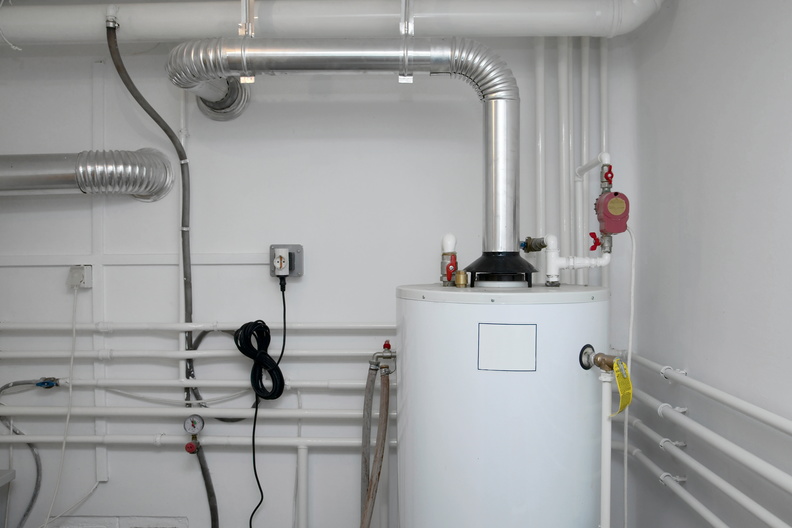As the frosty New Jersey air starts creeping in, your home’s comfort depends on one thing — a reliable, efficient boiler. But here’s the truth: most homeowners don’t realize their boiler is on its last leg until it’s too late. When that first real cold front hits, and your heat cuts out, repair crews are booked solid, and you’re left bundled up waiting.
Before that happens, watch for these five warning signs that it might be time to replace your boiler — not just repair it.

1. Rising Energy Bills Without Any Change in Use
If your heating bills are climbing faster than New Jersey Turnpike tolls, your boiler could be the culprit.
Older boilers lose efficiency over time, especially if they haven’t been regularly maintained. A 15-year-old boiler can operate 20–30% less efficiently than a new one, forcing it to burn more fuel to produce the same level of heat.
What to look for:
-
Gradual increase in monthly bills despite steady thermostat settings
-
Boiler running longer cycles to maintain temperature
-
Rooms that take noticeably longer to warm up
👉 Pro Tip: Compare your utility bills from the same month last year. If costs are up 15–20% without rate changes or new appliances, your system’s efficiency is fading fast.
2. Frequent Repairs or Strange Noises
If you’ve had to call your HVAC tech more than twice in the last two winters, your boiler is starting to show its age.
Grinding, banging, or whistling noises are early warning signs of mechanical wear, mineral buildup, or pressure issues. While a single repair might not mean much, repeated fixes often cost more in the long run than a full replacement.
Rule of thumb:
If repair costs exceed 50% of the price of a new unit, replacement is the smarter investment.
Common sounds to listen for:
-
Banging or clunking: Possible air in the system or failing pump
-
Whistling or kettling: Mineral scale buildup on the heat exchanger
-
Gurgling: Air trapped in pipes or poor circulation
3. Uneven Heating Throughout the House
Do you have one room that feels like Miami and another like the North Pole? Uneven heating is one of the clearest signs your boiler isn’t circulating heat efficiently.
Older systems often struggle to maintain consistent water pressure and flow — especially in multi-level homes common in Bergen, Essex, and Passaic counties.
Potential causes:
-
Sludge or debris buildup in pipes
-
Worn-out pump or failing circulation motor
-
Thermostat or zoning system malfunctions
Why it matters: Beyond comfort, uneven heat distribution means your boiler is working harder than necessary, driving up energy usage and accelerating wear.
4. Leaks, Corrosion, or Yellow Flame Warning Signs
A healthy boiler should be sealed tight and free of rust. If you notice any leaks, rust stains, or moisture around the base, don’t ignore them — they’re early indicators of internal corrosion or seal failure.
Even more serious is a yellow or flickering pilot light. This could indicate incomplete combustion — a potential carbon monoxide hazard.
Check immediately if:
-
Pilot flame is yellow instead of blue
-
There’s visible rust on the tank or pipe joints
-
You smell metallic or burning odors near the boiler
At that point, call a professional right away. Safety should never take a back seat to savings.
5. Your Boiler Is Over 15 Years Old
Boilers are built to last — but not forever. The average lifespan is 12–15 years, depending on maintenance, water quality, and brand.
Newer models are dramatically more efficient. Today’s ENERGY STAR–rated boilers can reach 95% efficiency, compared to older models that struggle to hit 70%. That’s a massive difference in long-term heating costs.
If your system was installed before 2010, it’s time to start planning an upgrade before you’re caught in a deep freeze without heat.
Bonus: The Comfort Test
Stand in front of your boiler while it’s running. If it feels sluggish, cycles frequently, or sounds like a freight train, it’s giving you a warning. A well-functioning boiler runs quietly, maintains steady heat, and cycles smoothly.
When it starts doing anything else — it’s time to act.
Why Replacing Before Winter Pays Off
Waiting until your boiler fails isn’t just inconvenient — it’s expensive. Emergency replacements in the middle of winter can cost 30–40% more, and you’ll have fewer system options available during peak season.
Upgrading in the fall or early winter gives you time to:
-
Choose a high-efficiency model that fits your home’s needs
-
Take advantage of NJ Clean Energy rebates and federal tax credits
-
Schedule installation before service demand skyrockets
Stay Ahead of the Cold Snap with Rich’s Heating & Cooling LLC
Whether you’re noticing higher bills, strange noises, or just want peace of mind, Rich’s Heating & Cooling can help you make the right call. We’ll inspect your current boiler, assess its condition, and walk you through efficient replacement options that keep your home warm without draining your wallet.
Don’t wait for the cold to hit.
Schedule your boiler inspection or replacement quote today with Rich’s Heating & Cooling LLC — keeping New Jersey homes warm, safe, and efficient all winter long.


Comments